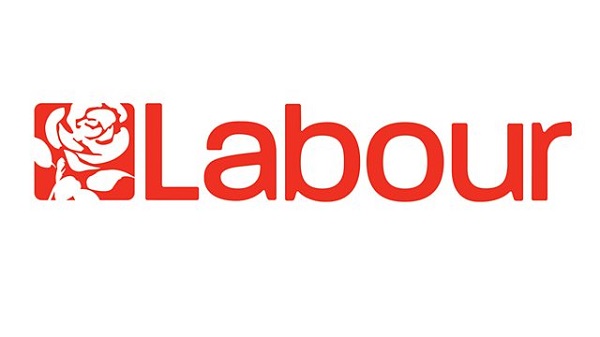
General Election 2019: Conservative, Labour and Lib Dem disability policies
With the UK General Election less than two weeks away, many voters are still torn as to who to vote for. For people who are disabled or have friends and family members with a disability, the biggest question is what are each of the parties’ disability policies?
Our writer, Emma Purcell, went through the three main parties’ – Conservative, Labour and Liberal Democrats – manifestoes to unearth all of the policies that will support or affect the lives of disabled people.
Please NOTE that the below are the claimed policies/commitments from each party, as stated in their manifestos, and don’t include any analysis, assessment or opinions of them.
Conservative Party manifesto 2019

Health and social care
- NHS cash boost resulting in 20 hospital upgrades, 40 new hospitals, 50,000 more nurses, 13,500 primary care professionals, 6,000 more doctors and an extra 50 million GP appointments a year.
- Treat mental health with the same urgency as physical health.
- Double research funding into dementia and speed up trials for new treatments.
- Make it easier for people with learning disabilities and autism to be discharged from hospital.
- To improve how people with learning disabilities and autism are treated in law and provide £74 million over three years for community care support.
- End hospital car park charges for disabled people and frequent outpatients.
- £1 billion extra funding every year for more social care staff and better infrastructure, technology and facilities.
- There will be a guarantee that no one needing care has to sell their home to pay for it.
Benefits and employment
-
- Reduce the number of reassessments disabled people go through to continue receiving benefits.
- Plans to publish a National Strategy for Disabled People before the end of 2020, which will look at ways to improve the benefits system and opportunities and access for disabled people in terms of housing, education, transport and jobs.
- Reduce the disability employment gap.
Education
- Plans to invest £780 million in new funding to support children with ‘special educational needs’ (SEN) next year alone.
- Deliver more school places for children with complex SEN.
Housing
- Encourage innovative design and technology to make housing more affordable, accessible and suitable for disabled people and an ageing population.
Supporting victims of crime
-
- Plans to protect people from physical attack or harassment, regardless of their gender, sexual orientation, ethnicity, religion or disability.
Read the full Conservative manifesto 2019. here are also accessible forms of the Conservative manifesto in audio, braille, large print, easy-read and BSL.
Labour Party manifesto 2019

Health and social care
- Plans to increase expenditure across the health sector by an average of 4.3% a year.
- All NHS services will be made accessible to BAME (black, Asian and minority ethnic), LGBT+ (lesbian, gay, bisexual, transgender/transsexual and other) and disabled patients. Plus, end mixed-sex wards.
- Introduce mandatory standards for NHS in-patient food and provide free hospital parking for patients, staff and visitors.
- Plans to allocate a greater proportion of overall funding to close-to-home health services and build interdisciplinary, patient-focused services across primary care, mental health and social care.
- Expand GP training places to provide resources for 27 million more appointments each year and ensure community pharmacies are supported.
- Provide an additional £1.6 billion a year for mental health treatment and invest £2 billion to modernise hospital facilities for mental health patients. Plus, £845 million in mental health services for children and young people.
- To allow people with learning disabilities and mental illnesses to be given choice, autonomy and the treatment they need.
- Plans to progress clinically appropriate prescription of medical cannabis.
- Abolish prescription charges in England.
- Build a comprehensive ‘national care service’ for England, which will include providing free personal care. This will begin with older people but plan to extend this provision to all working-age adults.
- Invest in additional care packages to support both older people and people with physical and learning disabilities living independently in their own homes.
- Invest to end the social care crisis, end 15-minute care visits and provide care workers with paid travel time, access to training and an option to choose regular hours.
- Increase the Carer’s Allowance for unpaid full-time carers.
Benefits
- Stop the dehumanising Work Capability and Personal Independent Payment assessments and make sure they are all done in-house.
- Increase Employment and Support Allowance by £30 per week for those in the work-related activity group.
- Raise the basic rate of support for children with disabilities to the level of Child Tax Credits.
- Ensure that severely disabled people who don’t have a formal carer receive extra support to enable them to meet the extra costs they inevitably face.
- Increase the Carer’s Allowance to the level of the Jobseeker’s Allowance.
- Plans to bring back specialist employment advisors, introducing a government-backed Reasonable Adjustments Passport scheme to help people move between jobs more easily. Also review support for disabled people at work, including the Access to Work scheme.
Employment
- Targeted bursaries will be available to women, BAME people, care leavers, ex-armed forces personnel and people with disabilities to encourage them to take up climate apprenticeships.
- Require employers to devise and implement plans to eradicate the gender pay gap – and pay inequalities underpinned by race and/or disability – or face fines.
Education
- Plans to recruit nearly 150,000 additional early-years staff, including special educational needs (SEN) co-ordinators.
- Provide the necessary funding for children with SEN and disabilities.
Transport
- Deliver improvements on the railway including accessibility for disabled people, ensure safe staffing levels and end driver-only operation.
Media and culture
- Work with trade unions and employers to make creative jobs accessible for all, ensuring there is diversity in these industries so that everyone sees themselves represented on screen and on stage.
Equality
- Plans to create a new Department for Women and Equalities, responsible for ensuring all policies and laws are equality-impact assessed in order to deliver a fairer society for women and all under-represented groups – including disability.
- Champion the social model of disability, ensuring that disabled people can be independent and equal in society.
- Transform the workplace for disabled people by requiring all employers to be trained to better support them. Also, introduce mandatory disability pay-gap reporting for companies with more than 250 employees.
- End disability discrimination and update the Equality Act to introduce new specific duties, including disability leave, paid and recorded separately from sick leave.
- Recommend that the Equality and Human Rights Commission prepares a specific code of practice on reasonable adjustments to supplement existing codes.
- Reinstate the Access to Elected Office Fund to enable disabled people to run for elected office.
- Adopt a British Sign Language Act, giving BSL full legal recognition in law.
- Work with employers, trade unions and public services to improve awareness of neurodiversity in the workplace and society.
Read the full Labour manifesto 2019. For those with learning disabilities, there is an easy-read version of the Labour manifesto.
Liberal Democrats manifesto 2019

Health and social care
- Invest £11 billion in mental health services and treat it with the same urgency as physical health.
- Introduce further mental health maximum waiting time standards, starting with children, people with eating disorders, and severe and enduring conditions.
- Raise £7 billion a year in additional revenue by putting 1p on Income Tax, with this money to be ring-fenced for spending on the NHS and social care.
- Reforming the Health and Social Care Act to make the NHS work in a more efficient and joined-up way, and to end the automatic tendering of services.
- Use £10 billion of capital fund to make necessary investments in equipment, hospitals, community, ambulance and mental health service buildings.
- End the GP shortfall by 2025 by both training more GPs and making greater appropriate use of nurses, physiotherapists and pharmacists, and also phone or video appointments, where clinically suitable.
- Commission the development of a dedicated, progressive Health and Care Tax.
- Establish a cross-party health and social care convention.
- Introduce a statutory independent budget-monitoring body for health and care, similar to the Office for Budget.
- Increase access to a broader range and number of clinically-effective talking therapies so that hundreds of thousands more people can receive this support. This will equal access for older people, BAME (black, Asian and minority ethnic), LGBT+ (lesbian, gay, bisexual, transgender/transsexual and other) patients, and people with autism or learning disabilities.
- Make prescriptions for people with chronic mental health conditions available for free on the NHS.
- Ensure that all frontline public service professionals, including in schools and universities, receive better training in mental health.
- Close unacceptable institution that are detaining people with learning disabilities and autism.
- Ensure people with learning disabilities can access screening, prevention, health and care services fairly.
- Support and encourage more clinical trials of cannabis for medicinal use and allow those who feel that cannabis helps to manage their pain to do so without fear of criminal prosecution.
Benefits
- Reverse the cuts to Employment Support Allowance for those in the work-related activity group.
- End Work Capability assessments and replace them with a new system that is run by local authorities and based on real-world tests.
- Reinstate the Independent Living Fund.
Education
- End the crisis in special educational needs and disabilities funding by allocating additional cash to local authorities to halve the amount that schools pay towards the cost of a child’s Education Health and Care Plan.
- Ensure that all teaching staff have the training to identify mental health issues and that schools provide immediate access for pupil support and counselling.
- Require universities to make mental health services accessible to their students, and introduce a Student Mental Health Charter through legislation.
Transport
- Improve disabled access to public transport via the Access for All programme.
- Increase accessibility to public places and transport by making more stations wheelchair accessible.
- Improve the legislative framework governing Blue Badges, setting up benchmarking standard for accessible cities, and banning discrimination by private hire vehicles and taxis.
Equality
- Introduce a British Sign Language Act to give BSL full legal recognition.
- Extend the Equality Act to all large companies with more than 250 employees, requiring them to monitor and publish data on gender, BAME, disability, and LGBT+ employment levels and pay gaps.
Read the full Liberal Democrats manifesto 2019. There are also other Formats of the Liberal Democrat manifesto, including clear print, audio, plain text, easy-read and BSL.
Local election 2019
If you would like to know who is standing in your local constituency, visit Who Can I Vote For? And enter your postcode in the search bar.
Remember: When choosing which party to vote for, also consider their other key policies including Brexit, economy, environment, crime, taxes, investments, defence and local authorities.
Keep an eye out on Disability Horizons later this week when we will be finding out the disability policies from the other six parties: Green, UKIP, Brexit, SNP, Plaid Cymru and DUP.
The UK General Election takes place on Thursday 12th December 2019 7 am – 10 pm.
By Emma Purcell
More on Disability Horizons…
- We speak to Marsha De Cordova, Shadow Minister for Disability
- Social Model of Disability: who, what and why
- Disability and the welfare state through history: were we on the agenda?
Originally posted on 02/12/2019 @ 6:57 pm